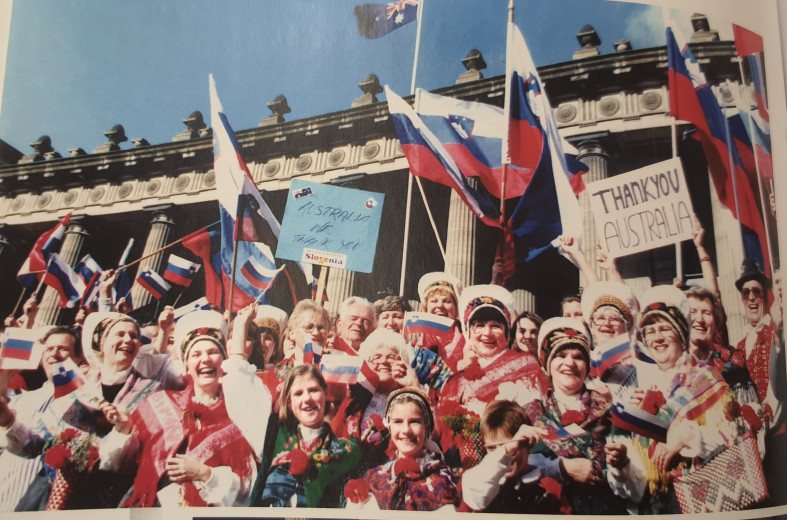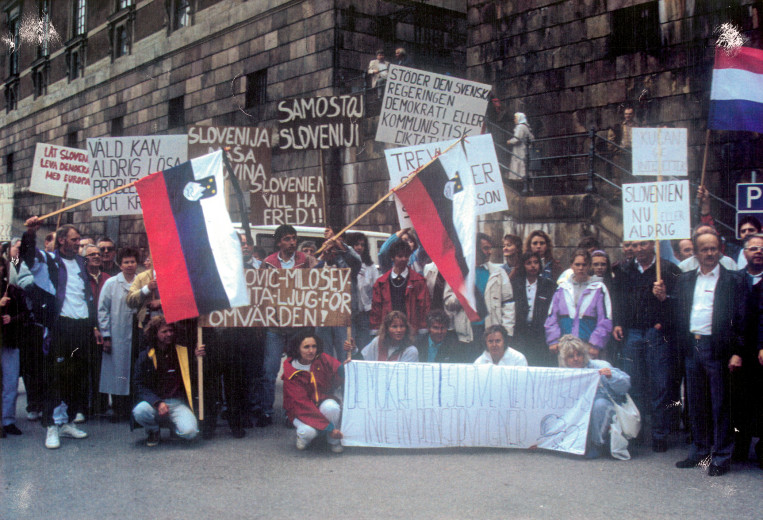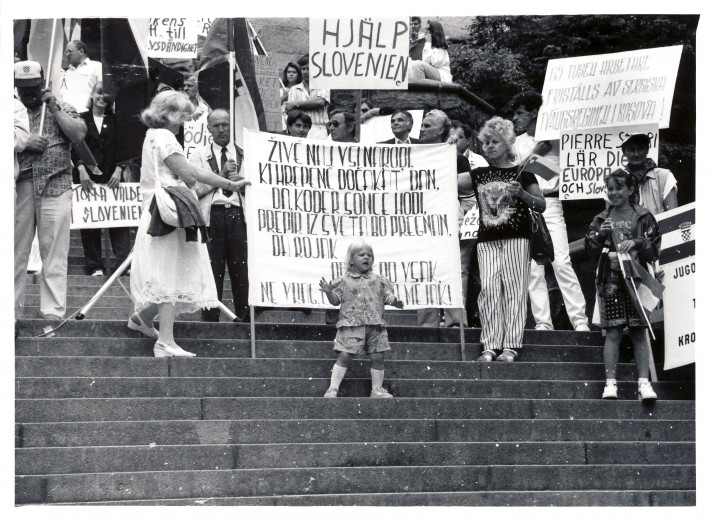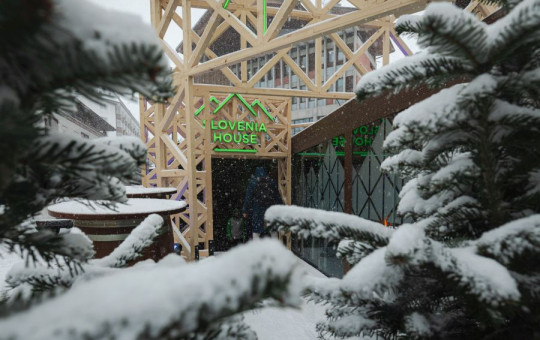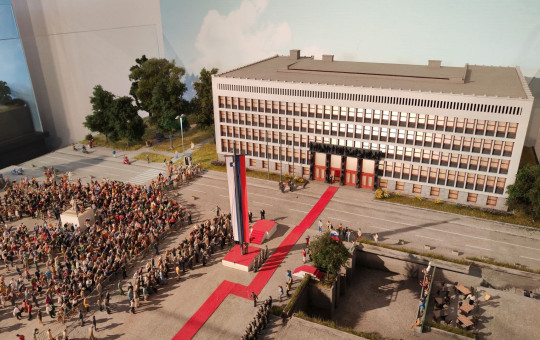Date: 26. May 2022
Time to read: 5 min
Thirty years ago, Slovenians as a nation made one of the most important decisions to make the dream of our ancestors about our own country a reality. This historically significant moment then connected and unified all Slovenians, at home and abroad. An independent and sovereign Slovenia was in fact a joint project of all parts of Slovenia – at home and abroad.
Joint project of all parts of Slovenia – at home and abroad
Thirty years ago, Slovenians as a nation made one of the most important decisions to make the dream of our ancestors about our own country a reality. This historically significant moment then connected and unified all Slovenians, at home and abroad. An independent and sovereign Slovenia was in fact a joint project of all parts of Slovenia – at home and abroad.
That historic Tuesday, 25 June 1991, when Slovenia solemnly declared itself an independent and sovereign state, resonated not only on Slovenian streets, but all over the world, as compatriots abroad rejoiced together with their homeland. But the next day, when those same streets were occupied by Yugoslav tanks, Slovenians abroad did not stand on the sidelines, but went into action themselves. They organised rallies, wrote protest letters, made numerous phone calls, sent telegrams, and raised funds in support of their homeland. Whoever was able to, took advantage of their political contacts to get the governments of the countries in which they lived to recognise the young country as soon as possible. Slovenians protested in front of the headquarters of important governmental and international institutions, to warn about the inadmissible aggression of the Yugoslav Army, calling on them to condemn such conduct and recognise Slovenia's independence. At the declaration of independence, the Slovenian World Congress, established on this occasion as an all-Slovene non-partisan organisation of all Slovenians at home and abroad, organised the All-Slovenian World Congress in Ljubljana, which was attended by representatives of Slovenian communities from all over the world. These delegates played a very important role at that time, as they were able to provide journalists from their countries with first-hand information about the events in Slovenia, and this information was very different from the information published by the officials in Belgrade.
Today in Slovenia we are not aware enough of the important role played by our compatriots abroad in the process of international recognition and promotion of the new state, and how much credit they deserve for Slovenia being marked on the world map as an independent country. Even today, they take advantage of their contacts with the desire to help the homeland make good economic, diplomatic and other connections. The activities of Slovenians abroad started even before June 1991. The idea of an independent Slovenia had been growing among compatriots around the world for many decades before its realisation. On the occasion of the hundredth anniversary of the demand for a United Slovenia in 1948, France Dolinar (also known as Peter Levičnik), a priest and historian, wrote a booklet titled "Slovenska državna misel" (Slovenian State Thought). In the conclusion of this text, which was reproduced by Slovenians in the Spittal camp in Carinthia, Austria, he wrote: "The Slovenian state, whose leader is the Slovenian political nation in its entirety, is the highest goal of Slovenian politics." In 1950, they also discussed the right to complete national sovereignty in the first issue of the newspaper Slovenska država (Slovenian State), which was then published in Chicago and later in Toronto, and was created by the great defender of independent Slovenia, Ciril Žebot; abroad, Franc Jeza was also promoting the same idea. In the 1980s, this was discussed by speakers who came to the Municipalities of Trieste at Draga. There were many more such initiatives and reflections. The idea of an independent and sovereign Slovenia was always present in the work of the Slovenian emigrant community, and from there it resonated first in the neighbouring countries, and then took root in the homeland.
They were also active in the days before the plebiscite in 1990. At that time, the Executive Council of the Republic of Slovenia received more than six thousand supporting signatures from all over the world. In order to show that they were aware of the necessity of involving Slovenians abroad in the process of independence, and at the same time encourage them to actively engage, members of the Slovene independence government visited almost all the important centres of Slovenian emigrant communities in 1991. Wherever they went, they got the same response – you can count on us.

